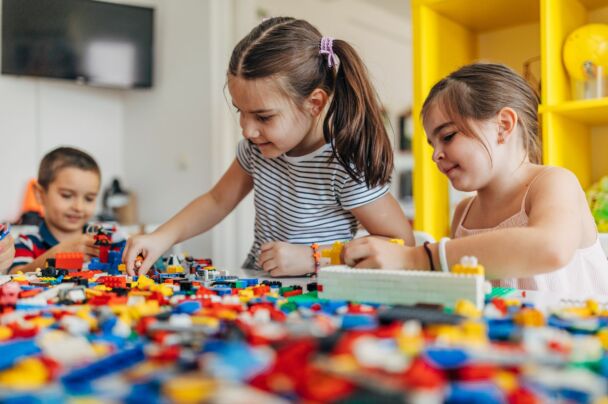Description
The set of competencies and skills required of today’s teachers is changing quickly and radically.
In fact, teaching today is not only about what students see and hear.
It’s much more about leading the energy in the classroom toward what the students feel. Thus, teachers’ energy and consideration of personal and learners’ well-being have never been more important.
The course will clarify Playful Learning, and how to exploit active teaching methods and tools to bring energy to the classroom and have children learn through play.
Playful Learning is a learning program developing and encouraging a more playful approach to children’s development and learning. Since its launch in 2013, it has contributed to strengthening children’s creative, experimental, and playful approach to the world and their motivation to learn.
Participants will acquire all the knowledge and skills necessary to implement the principles of Playful Learning in their classroom. First, they will start strengthening their well-being, focusing on different methods to reduce stress, protect, keep up the energy, and recharge.
Next, the course will focus on Playful Learning and how to implement a common language of well-being in the classroom. Participants will practice a variety of methods, energy tools, and body-mind activities all aimed at this very outcome.
Part of the training will also concentrate on the heart-full approach. This helps teachers and students develop social-emotional skills such as empathy, kindness, and a positive tone. Combined with creative activities and energy tools it builds up a strong, helpful, and inclusive culture in your classroom.
Finally, participants will focus on how to involve the parents of the students in a positive and meaningful way. For instance, to build a strong relationship between school and home to support the overall well-being of your students.
The course will mix practice with a strong foundation of theory, with the goal of creating a common language of well-being in the classroom that develops pupils’ and students’ personal and social skills.
By its end, participants will know how to reduce stress and recharge their own energy. Moreover, they will be aware of the benefits of Playful Learning and have acquired a toolbox of methods, energy tools, and mind-body activities to use in their classroom.
What is included
Learning outcomes
The course will help you to:
- Understand and use Playful Learning to implement a common language of well-being in your classroom with hands-on tools and body-mind activities;
- Reduce stress and recharge your energy through practical tools and exercises;
- Use Playful Learning to strengthen the personal and social skills of your students;
- Inspire and involve the parents of your students in a positive and meaningful way to develop the overall well-being of your students;
- Exchanging experiences and examples of good practice in a multicultural and safe context.
Tentative schedule
Day 1 – Introduction to the course
- Introduction to the course, the school, and the external week activities;
- Icebreaker activities;
- Presentation of you, your school, and your expectations for the course;
- Needs analysis.
Intro to Playful learning with a heartful approach
- What is Kidz Academy?
- Teaching involving both body and creativity: shared discussion and empirical evidence;
- Body-Mind Balance: evidence-based approaches to wellbeing in the classroom.
Day 2 – The well-being of the teacher
- Introduction to the HeartMath Institute: A research-based approach to stress management and emotional regulation;
- Breathing and visualization exercises improve stress management and reduce negative emotions;
- Learning how to regulate and work with energy to become more aware of your own energy and how to interact with the energy in your environment;
- Seated practice and exchange of experience.
Day 3 – Playful learning in the classroom
- Benefits of Playful learning with a heartful approach for teachers and students;
- Approaches to integrating Playful Learning activities, tools, and practices into your classroom;
- How to use Playful Learning to develop and strengthen the personal and social skills of your students;
- Practical training of Playful Learning activities and tools in your material.
Day 4 – Wellbeing in the classroom
- Methods, activities, and tools to create a common language of well-being in your classroom;
- Approaches to integrating a common language of well-being in your classroom;
- How to use a common language of well-being to develop and strengthen social-emotional skills in your classroom such as empathy, kindness, and a positive tone;
- Practical training of activities and tools in your material to train well-being in the classroom.
Day 5 – How to facilitate and pay it forward
- Teaching outside of one’s comfort zone;
- The learning community;
- Getting parent’s support;
- How to inspire and involve the parents.
Day 6 – Course closure and cultural activities
- Course evaluation: round-up of acquired competencies, feedback, and discussion;
- Awarding of the course Certificate of Attendance;
- Excursion and other external cultural activities.





